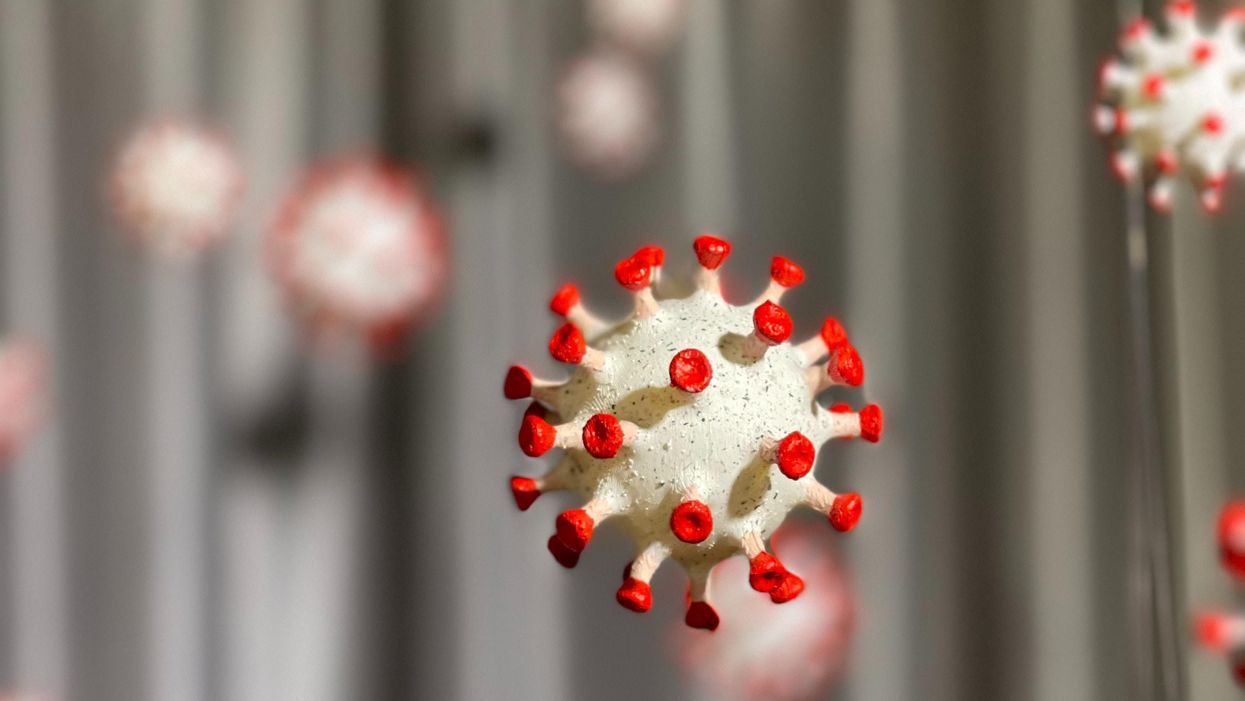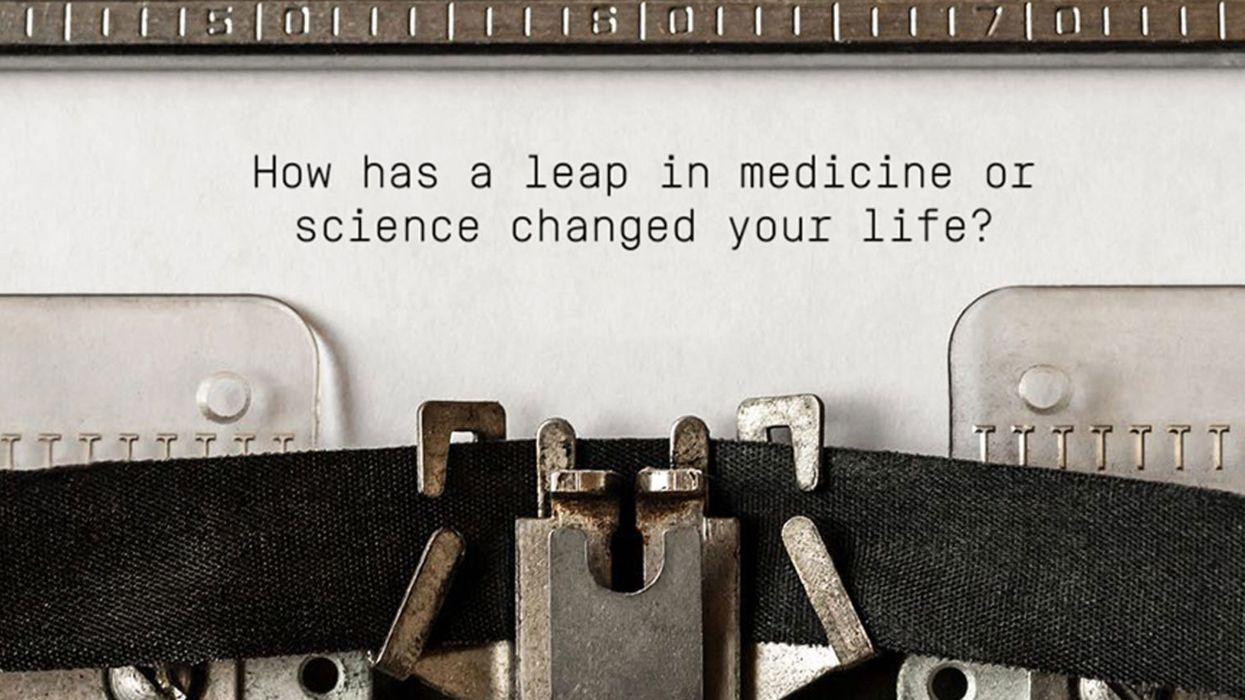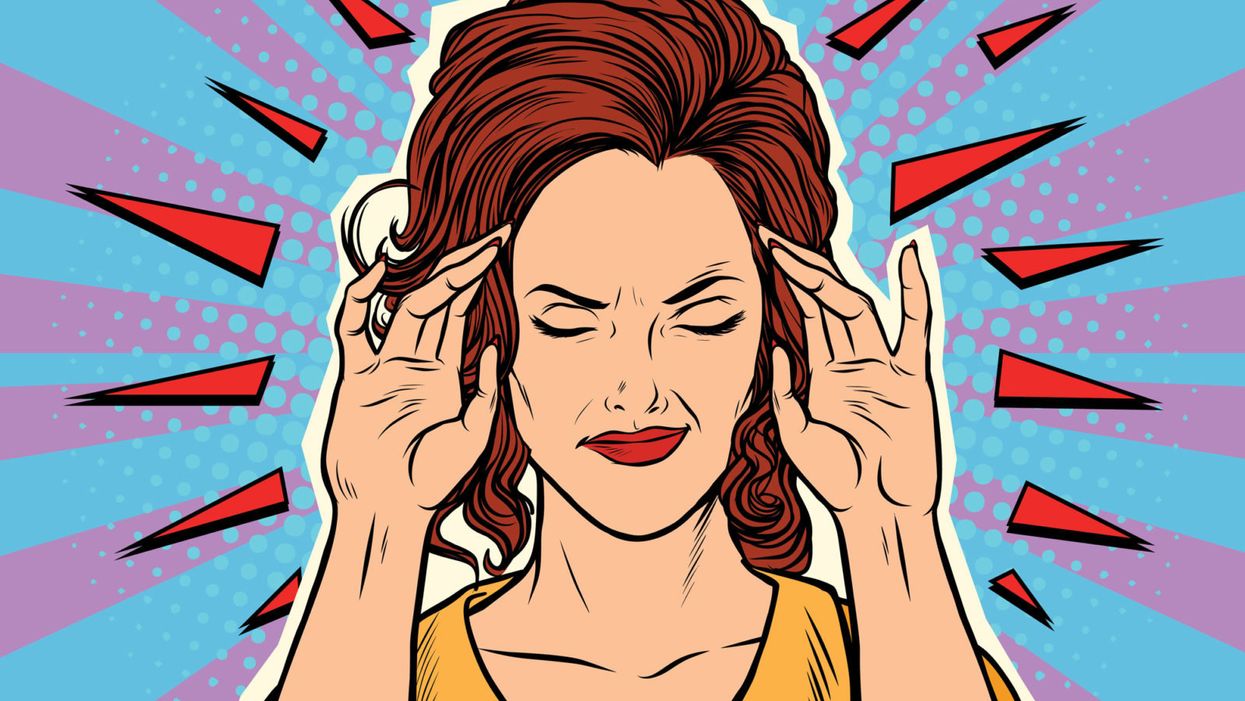Dec. 17th Event: The Latest on Omicron, Boosters, and Immunity
Kira Peikoff was the editor-in-chief of Leaps.org from 2017 to 2021. As a journalist, her work has appeared in The New York Times, Newsweek, Nautilus, Popular Mechanics, The New York Academy of Sciences, and other outlets. She is also the author of four suspense novels that explore controversial issues arising from scientific innovation: Living Proof, No Time to Die, Die Again Tomorrow, and Mother Knows Best. Peikoff holds a B.A. in Journalism from New York University and an M.S. in Bioethics from Columbia University. She lives in New Jersey with her husband and two young sons. Follow her on Twitter @KiraPeikoff.

The Omicron variant poses new uncertainty for the vaccines, which four leading experts will address during our virtual event on December 17th, 2021.
This virtual event will convene leading scientific and medical experts to discuss the most pressing questions around the new Omicron variant, including what we know so far about its ability to evade COVID-19 vaccines, the role of boosters in eliciting heightened immunity, and the science behind variants and vaccines. A public Q&A will follow the expert discussion.
EVENT INFORMATION:
Date: Friday Dec 17, 2021
2:00pm - 3:30pm EST

Dr. Céline Gounder, MD, ScM, is the CEO/President/Founder of Just Human Productions, a non-profit multimedia organization. She is also the host and producer of American Diagnosis, a podcast on health and social justice, and Epidemic, a podcast about infectious disease epidemics and pandemics. She served on the Biden-Harris Transition COVID-19 Advisory Board.
 Dr. Theodora Hatziioannou, Ph.D., is a Research Associate Professor in the Laboratory of Retrovirology at The Rockefeller University. Her research includes identifying plasma samples from recovered COVID-19 patients that contain antibodies capable of neutralizing the SARS-CoV-2 coronavirus.
Dr. Theodora Hatziioannou, Ph.D., is a Research Associate Professor in the Laboratory of Retrovirology at The Rockefeller University. Her research includes identifying plasma samples from recovered COVID-19 patients that contain antibodies capable of neutralizing the SARS-CoV-2 coronavirus.

Dr. Onyema Ogbuagu, MBBCh, is an Associate Professor at Yale School of Medicine and an infectious disease specialist who treats COVID-19 patients and leads Yale’s clinical studies around COVID-19. He ran Yale’s trial of the Pfizer/BioNTech vaccine.

Dr. Eric Topol, M.D., is a cardiologist, scientist, professor of molecular medicine, and the director and founder of Scripps Research Translational Institute. He has led clinical trials in over 40 countries with over 200,000 patients and pioneered the development of many routinely used medications.
This event is the fourth of a four-part series co-hosted by Leaps.org, the Aspen Institute Science & Society Program, and the Sabin–Aspen Vaccine Science & Policy Group, with generous support from the Gordon and Betty Moore Foundation and the Howard Hughes Medical Institute.

Kira Peikoff was the editor-in-chief of Leaps.org from 2017 to 2021. As a journalist, her work has appeared in The New York Times, Newsweek, Nautilus, Popular Mechanics, The New York Academy of Sciences, and other outlets. She is also the author of four suspense novels that explore controversial issues arising from scientific innovation: Living Proof, No Time to Die, Die Again Tomorrow, and Mother Knows Best. Peikoff holds a B.A. in Journalism from New York University and an M.S. in Bioethics from Columbia University. She lives in New Jersey with her husband and two young sons. Follow her on Twitter @KiraPeikoff.
Enter our writing contest for a chance to win a cash prize and publication on leapsmag.
Last year, we sponsored a short story contest, asking writers to share a fictional vision of how emerging technology might shape the future. This year, the competition has a new spin.
The Prompt:
Write a personal essay of up to 2000 words describing how a new advance in medicine or science has profoundly affected your life.
The Rules:
Submissions must be received by midnight EST on September 20th, 2019. Send your original, previously unpublished essay as a double-spaced attachment in size 12 Times New Roman font to kira@leapsmag.com. Include your name and a short bio. It is free to enter, and authors retain all ownership of their work. Upon submitting an entry, the author agrees to grant leapsmag one-time nonexclusive publication rights.
All submissions will be judged by the Editor-in-Chief on the basis of insightfulness, quality of writing, and relevance to the prompt. The Contest is open to anyone around the world of any age, except for the friends and family of leapsmag staff and associates.
The winners will be announced by October 31st, 2019.
The Prizes:
Grand Prize: $500, publication of your story on leapsmag, and promotion on our social media channels.
First Runner-Up: $100 and a shout-out on our social media channels.
Good luck!
Kira Peikoff was the editor-in-chief of Leaps.org from 2017 to 2021. As a journalist, her work has appeared in The New York Times, Newsweek, Nautilus, Popular Mechanics, The New York Academy of Sciences, and other outlets. She is also the author of four suspense novels that explore controversial issues arising from scientific innovation: Living Proof, No Time to Die, Die Again Tomorrow, and Mother Knows Best. Peikoff holds a B.A. in Journalism from New York University and an M.S. in Bioethics from Columbia University. She lives in New Jersey with her husband and two young sons. Follow her on Twitter @KiraPeikoff.
Men and Women Experience Pain Differently. Learning Why Could Lead to Better Drugs.
According to the CDC, one fifth of American adults live with chronic pain, and women are affected more than men.
It's been more than a decade since Jeannette Rotondi has been pain-free. A licensed social worker, she lives with five chronic pain diagnoses, including migraines. After years of exploring treatment options, doctors found one that lessened the pain enough to allow her to "at least get up."
"With all that we know now about genetics and the immune system, I think the future of pain medicine is more precision-based."
Before she says, "It was completely debilitating. I was spending time in dark rooms. I got laid off from my job." Doctors advised against pregnancy; she and her husband put off starting a family for almost a decade.
"Chronic pain is very unpredictable," she says. "You cannot schedule when you'll be in debilitative pain or cannot function. You don't know when you'll be hit with a flare. It's constantly in your mind. You have to plan for every possibly scenario. You need to carry water, medications. But you can't plan for everything." Even odors can serve as a trigger.
According to the CDC, one fifth of American adults live with chronic pain, and women are affected more than men. Do men and women simply vary in how much pain they can handle? Or is there some deeper biological explanation? The short answer is it's a little of both. But understanding the biological differences can enable researchers to develop more effective treatments.
While studies in animals are straightforward (they either respond to pain or they don't), humans are more complex. Social and psychological factors can affect the outcome. For example, one Florida study found that gender role expectations influenced pain sensitivity.
"If you are a young male and you believe very strongly that men are tougher than women, you will have a much higher threshold and will be less sensitive to pain," says Robert Sorge, an associate professor at the University of Alabama at Birmingham whose lab researches the immune system's involvement in pain and addiction.
He also notes, "We looked at transgender women and their pain sensitivity in comparison to cis men and women. They show very similar pain sensitivity to cis women, so that may reduce the impact of genetic sex in terms of what underlies that sensitivity."
But the difference goes deeper than gender expectations. There are biological differences as well. In 2015, Sorge and his team discovered that pain stimuli activated different immune cells in male and female rodents and that the presence of testosterone seemed to be a factor in the response.
More recently, Ted Price, professor of neuroscience at University of Texas, Dallas, examined pain at a genetic level, specifically looking at the patterns of RNA, which are single-stranded molecules that act as a messenger for DNA. Price noted that there were differences in these patterns that coincided with whether an individual experienced pain.
Price explains, "Every cell in your body has DNA, but the RNA that is in the cells is different for every cell type. The RNA in any particular cell type, like a neuron, can change as a result of some environmental influence like an injury. We found a number of genes that are potentially causative factors for neuropathic pain. Those, interestingly, seemed to be different between men and women."
Differences in treatment also affect pain response. Sorge says, "Women are experiencing more pain dismissal and more hostility when they report chronic pain. Women are more likely to have their pain associated with psychological issues." He adds that this dismissal may require women to exaggerate symptoms in order to be believed.
This can impact pain management. "Women are more likely to be prescribed and to use opioids," says Dr. Roger B. Fillingim, Director of Pain Research and Intervention Center of Excellence at the University of Florida. Yet, when self-administering pain meds, "women used significantly less opioids after surgery than did men." He also points out that "men are at greater risk for dose escalation and for opioid-related death than are women. So even though more women are using opioids, men are more likely to die from opioid-related causes."
Price acknowledges that other drugs treat pain, but "unfortunately, for chronic pain, none of these drugs work very well. We haven't yet made classes of drugs that really target the underlying mechanism that causes people to have chronic pain."
New drugs are now being developed that "might be particularly efficacious in women's chronic pain."
Sorge points out that there are many variables in pain conditions, so drugs that work for one may be ineffective for another. "With all that we know now about genetics and the immune system, I think the future of pain medicine is more precision-based, where based on your genetics, your immune status, your history, we may eventually get to the point where we can say [certain] drugs have a much bigger chance of working for you."
It will take some time for these new discoveries to translate into effective treatments, but Price says, "I'm excited about the opportunities. DNA and RNA sequencing totally changes our ability to make these therapeutics. I'm very hopeful." New drugs are now being developed that "might be particularly efficacious in women's chronic pain," he says, because they target specific receptors that seem to be involved when only women experience pain.
Earlier this year, three such drugs were approved to treat migraines; Rotondi recently began taking one. For Rotondi, improved treatments would allow her to "show up for life. For me," she says, "it would mean freedom."

